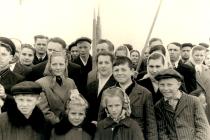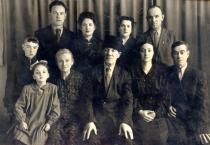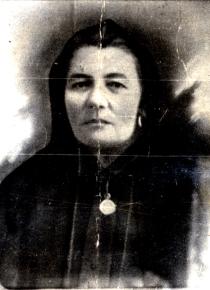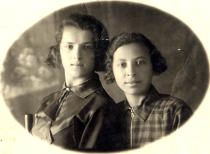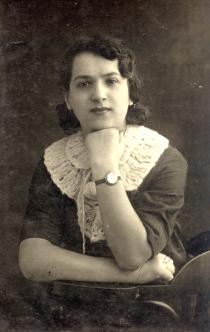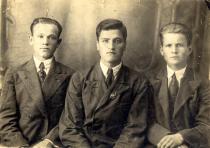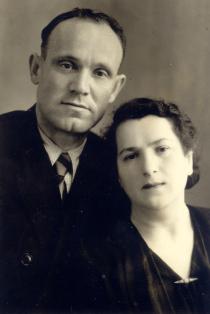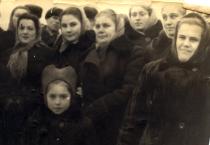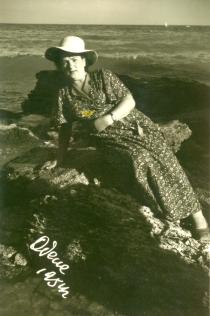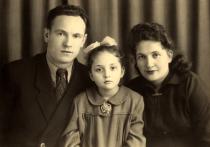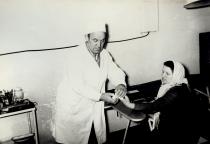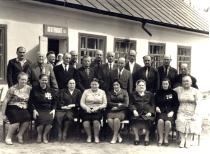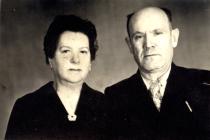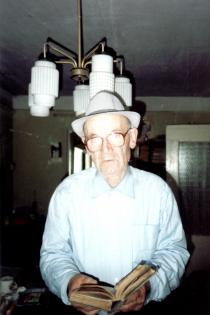My mother Reizl Shor. This photo was taken in 1929 in Bershad.
M mother Reizl, born in 1893, survived. My mother was the last child, born in the family. She studied 2 or 3 years in a Jewish school, and this was all education she got. According to a common vision at the time, this education was more than sufficient for a girl from a poor Jewish family. Reizl could read and write in Yiddish and knew prayers that her father Naftul taught her. My grandfather and grandmother were very religious and raised my mother religious, too. My parents' wedding, despite the troubled times, attacks of gangs, revolution, hunger and devastation, was arranged according to all Jewish rules. Before the war we had my parents' wedding picture on the wall: my mother wearing a white gown and a veil and my father wearing a black suit. They were photographed the moment they stepped into the chuppah at the most beautiful synagogue in Bershad. My parents were hopeful about the revolution believing the communist propaganda with all their heart. They did not take part in the communist movement, but they were enthusiastic about everything new it brought in.
My parents lived in my mother parents’ home. My mother was a housewife. My father made warm sheepskin coats that were in demand with Jews and Ukrainians in Bershad and the neighboring villages. My father worked very hard. My father often traveled to his villages where he had customers. He stayed in his shop, which was arranged in our house from morning till late at night, but there was nothing that could force him to work on Sabbath, the sacred tradition that he never breached. In 1919 my older brother named Shmil after my father’s father was born. This was a hard time. Mama told me that when gangs broke into the village, the whole family found shelter in the basement and she pressed her palm to little Shmil’s mouth to keep him quiet. If he had cried out, the bandits might have discovered the family. The town seemed to be overburdened with all kinds of trouble in those years: hunger and robbers had a hard impact on my grandmother and grandfather who fell ill and died.
Our family was a traditional Jewish family. We looked forward to Sabbath. Before Sabbath mama cleaned and washed the house and covered the tables with clean flax tablecloths. On weekdays she cooked borsch, beans and noodles, but on Friday morning she started cooking for Sabbath and there was delicious smell of the Saturday food teasing us - sweet and sour stew in the pot in the oven, gefilte fish with vegetables cooking in another pot, mama took crispy challot from the oven. We washed ourselves and dressed up waiting for our father to come home from the synagogue to start celebrating Sabbath. Mama wore a white kerchief. She lit candles and covering her eyes with her hands read the prayer, my father pronounced the blessing and we dipped a challah into the salt. Mama left the ceramic pots with food for Saturday in the oven that she sealed and closed with a lid. The food kept warm in the oven. Mama opened the oven by herself, though it was against the rules - she had to invite a Christian person to do this kind of work, but my hardworking mama could not imagine that somebody else’s hands would touch the food that she had cooked with so much love. She used to say that the Lord would forgive her for this fault. We also followed kashrut.

